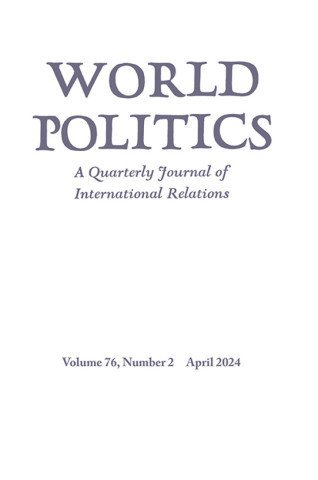Where Have the Guardians Gone? Law Enforcement and the Politics of Supranational Forbearance in the European Union
IF 2.5
1区 社会学
Q1 INTERNATIONAL RELATIONS
引用次数: 0
Abstract
abstract: Why would a supranational law enforcer suddenly refrain from wielding its powers? The authors theorize the supranational politics of forbearance—the deliberate underenforcement of the law—and explain how they arise from cross-pressures between prosecutorial discretion and intergovernmental policy-making. The article then traces why an exemplary supranational enforcer—the European Commission—became reluctant to launch infringements against European Union member states. While the Commission's policy-making role as engine of integration has been controversial, its prosecutorial role as guardian of the Treaties has been viewed as less contentious. Yet after 2004, infringements launched by the Commission plummeted. The authors demonstrate that the Commission's political leadership grew alarmed that aggressive enforcement was eroding intergovernmental support for its policy agenda. By reining in the bureaucrats managing enforcement and embracing conciliatory dialogues with governments, the Commission sacrificed its role as guardian of the Treaties to safeguard its role as engine of integration. The article's findings highlight the consequences of politicizing international institutions and the tradeoffs facing executives double-hatting as prosecutors and policymakers.守护者去哪儿了?欧盟的执法与超国家容忍政治
为什么一个超国家的执法者会突然停止行使其权力?作者将超国家的宽容政治——故意执法不足——理论化,并解释了它们是如何从检察官自由裁量权和政府间政策制定之间的交叉压力中产生的。文章随后追溯了超国家执法者——欧盟委员会——不愿对欧盟成员国发起侵权行为的原因。虽然委员会作为一体化引擎的决策作用一直存在争议,但其作为《条约》守护者的起诉作用被认为争议较少。然而,2004年之后,欧盟委员会发起的侵权案件大幅减少。作者表明,委员会的政治领导对积极的执法正在侵蚀政府间对其政策议程的支持感到震惊。通过控制管理执法的官僚和接受与各国政府的和解对话,委员会牺牲了其作为《条约》守护者的作用,以维护其作为一体化引擎的作用。这篇文章的研究结果强调了将国际机构政治化的后果,以及高管们同时担任检察官和政策制定者所面临的权衡。
本文章由计算机程序翻译,如有差异,请以英文原文为准。
求助全文
约1分钟内获得全文
求助全文
来源期刊

World Politics
Multiple-
CiteScore
8.40
自引率
0.00%
发文量
24
期刊介绍:
World Politics, founded in 1948, is an internationally renowned quarterly journal of political science published in both print and online versions. Open to contributions by scholars, World Politics invites submission of research articles that make theoretical and empirical contributions to the literature, review articles, and research notes bearing on problems in international relations and comparative politics. The journal does not publish articles on current affairs, policy pieces, or narratives of a journalistic nature. Articles submitted for consideration are unsolicited, except for review articles, which are usually commissioned. Published for the Princeton Institute for International and Regional Affairs
 求助内容:
求助内容: 应助结果提醒方式:
应助结果提醒方式:


